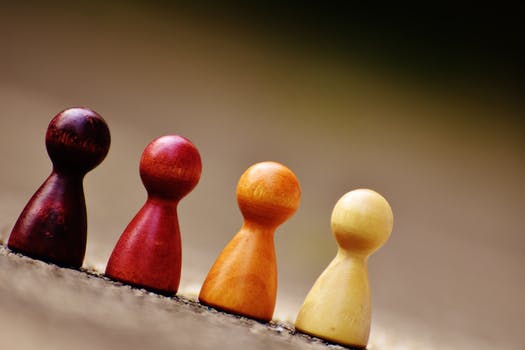Who Are You? The Science (or Lack Thereof) of Myers-Briggs
If you've been hired for a job in the last thirty years, chances are you've heard of Myers-Briggs. It's a personality diagnostic tool used by everyone from self-searching college kids to Fortune 500 companies.
It's understandable why employers embrace the Myers-Briggs Inventory. If there is a way to figure out ahead of time whether or not you're going to 'fit in,' it could save the company money in the long run, and you might avoid working for a company you don't like.
If the test can prove you've got the right stuff, maybe you'll even skip a couple of rungs on your way up the management ladder. Perhaps someday you'll be the one ordering the personality testing of the young upstarts seeking to unseat you from your hard-fought throne.
Obviously, when it comes to business, this is all a pretty big deal.
If you're like me, you probably believed the Myers-Briggs was supported by some serious clinical evidence. After all, this is a common, widespread, accepted tool. People embrace their Myers-Briggs designation, labeling themselves ENFJ or ISTP with the same certainty as height or blood type.
Surely it's been all proven out through a double-blind study, or perhaps studies. We're talking the kind of careful, thorough science necessary when people's egos, and personal livelihoods, are balanced on a handful of test answers.
The problem is that science has the same relationship with Myers-Briggs that it had with alchemy back in the Dark Ages. It's true that Myers Briggs has turned into gold, but a different kind of gold to be sure.
Isabel Myers, daughter of Katharine Briggs, conjured up the personality test at her kitchen table in the forties, shortly after World War Two. She had no formal training in psychology or testing. She based her system on her reading of Carl Jung, who had in turn been a student of the famed Sigmund Freud. Jung suggested in one of his writings, Psychological Types, that human behavior seemed to break down into categories.
Myers, believing that Jung was on to something, went on to build her personality test, placing people on four different continuums: Introvert/Extrovert, Thinking/Feeling, Intuitive/Sensing, and Judging/Perceiving. These variables allowed for 16 different combinations.
When she sent her personality inventory, or 'Indicator', to Jung, he was lukewarm, suggesting to Myers that an individual's personality was far too complex to capture with a set of clever questions. Undeterred, Myers made the rounds of academia, hoping to drum up support for her newly minted system. She was repeatedly turned away due to an utter lack of scientific bonafides.
But in true entrepreneurial spirit, Myers soldiered on. She eventually found a buyer in Henry Chauncey, who had just started up a company called Educational Testing Service. You might know it better as the Scholastic Aptitude Test, or SAT.
Back in the late fifties, Chauncey decided that a personality test would be a nice addition to his fledgling college entry exam. According to Annie Murphy Paul in her book, The Cult of Personality, Myers was then able to leverage her Chauncey connection into some measure of respectability.
Unfortunately for Myers, one group never fully bought in: psychologists. They have their reasons, including studies where people's answers on the Myers-Briggs can differ significantly depending on the time of day it's administered. One study showed that up to 50% of the people who are given the test a second time end up with a different personality profile.
It's also been suggested that because of the way the test was constructed (little emphasis on negative traits), most people tend to accept their results without examining it too closely.
So what's the bottom line? Is Myers-Briggs a bunch of baloney? At least on an anecdotal level, there certainly appears to be some connection between people and distinct communication styles. Even Hippocrates observed that people seem to fall into four different types.
However, it seems like an overreach to suggest Myers- Briggs, or any test for that matter, could ever capture one's personality as neatly as trapping a firefly in a glass jar. We've witnessed this oversimplification before, with the idea that a single number can represent the breadth and width of one's IQ.
Myers-Briggs, like IQ tests, do tell us something about ourselves, and it probably makes sense to consider them as one interesting set of data points on an incredibly complicated spectrum of human behavior. But in the end, putting too much emphasis on a personality test appears to be less about science and more about alchemy.
And you always wondered what went on in HR behind closed doors...
Check out Robb’s new book and more
content at www.bestmindframe.com.




Comments
Post a Comment